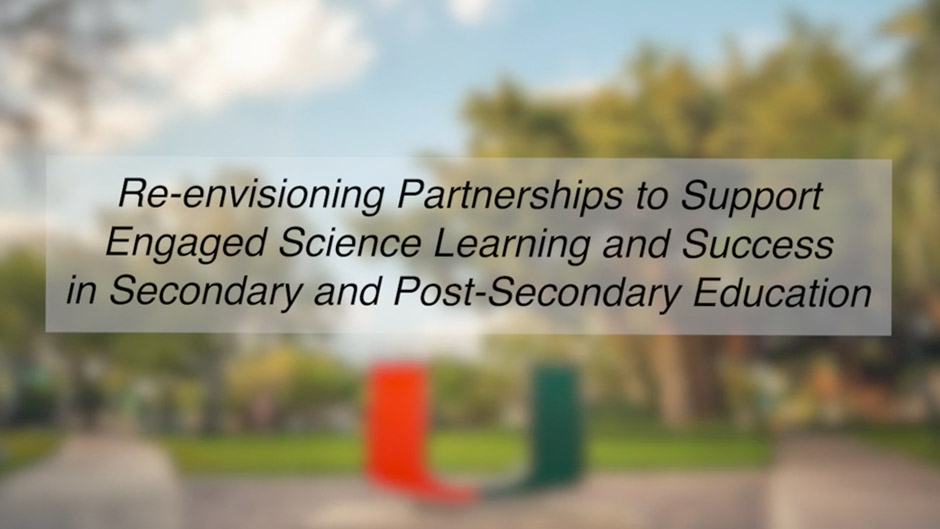A varied group of panelists took part in an October 22 virtual panel discussion hosted by the School of Education and Human Development (SEHD) on “Re-Envisioning Partnerships to Support Engaged Science Learning and Success in Secondary and Post-Secondary Education.” Attendees and panelists also saw the premiere of a UM film based on interviews with secondary teachers and their students, UM faculty, and local business and elected leaders. The event was supported by multiple grants, including a U.S. Department of Education Supporting Effective Educator Development award and a the UM SEEDS office.
“Our purpose is to discuss how partnerships between public schools, and institutions of higher education and business could be reimagined to support STEM careers for women and marginalized populations,” said UM President Julio Frenk. “I hope this is a spark that leads to action across all STEM fields.”
In welcoming attendees, SEHD Dean Laura Kohn-Wood emphasized the importance of expanding STEM opportunities for Blacks, Hispanics and women. She also thanked Mary Avalos, research associate professor, Department of Teaching and Learning, for leading the project and organizing the event.
Colleen Wright, education reporter for The Miami Herald, moderated the discussion with five panelists:
- State Rep. Vance Aloupis (R-115), CEO of The Children’s Movement
- Henri R. Ford, dean and chief academic officer of the Miller School of Medicine
- Abby Vicencio, member, SEHD Deans Advisory Committee
- Derin Ural, professor in practice and associate dean of student affairs of the College of Engineering
- Mabilin (Mabi) Rego, former vice president, lifestyle and international technology for Assurant Inc.
Several of the panelists, as well as faculty and STEM professionals featured in the film, emphasized the importance of giving science teachers more flexibility in the classroom to accommodate students with different learning styles. Academic freedom for teachers would also provide more opportunities to implement engaging, hands-on STEM learning over knowledge-based test preparation. On the college level, Industry partnerships, such as internships can help students explore career paths in the STEM fields.
But as Ji Shen, associate professor of teaching and learning, noted in the film, “STEM disparities are not something that can be resolved by the education system itself. This is a larger social problem, and we need to bring resources to what happens to students outside the school and in the community.” Thus, providing access to STEM learning experiences outside of the school day may also increase opportunities for all students to pursue STEM majors and careers.
Watch the event on the event webpage.

